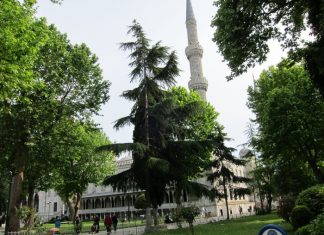At the sight of a Roman force appearing seemingly from nowhere to rescue them, the fleeing rear guard of Galerius’ army took courage and began to make a stand, something they had apparently not been able to do since Carrhae. Tiridates’ troops, their weapons bloody but their spirits high at having been given a chance to revenge themselves, soon appeared over the crest of the hillock, marching proudly in formation. And as Constantine’s forces continued their westward progress, more and more stragglers who had been cut off by the Persian cavalry and left to be destroyed joined them.
By the fourth hour after the brief but bloody battle on the plain, some two thousand men had been formed into a ragged but identifiable military formation, marching behind Constantine and Tiridates, who had at last agreed to accept a mount. The rest of Constantine’s forces acted as a rear guard, but, when another hour passed with an additional thousand increase in the ragged and dirty army, it was obvious that the Persian skirmishers had no intention of renewing the attack upon the Roman rear.
Augusta Euphratensia
Four days later Constantine’s army, now increased to more than an entire legion in numbers, and considerably more than that in spirit, marched into the small Syrian city of Beroea, just across the border from the province of Augusta Euphratensia, and less than two days’ ride from Antioch itself. Here, at last, they found a Roman military headquarters, distinguishable by its standards and banners, located in a large house of the town. Constantine dismounted and, followed by Tiridates and Dacius, marched into the room and gave the salute of the legions to a startled Caesar Galerius and his staff.
“Flavius Valerius Constantinus,” the young officer reported solemnly. “Tribune of the Im ”
“I know who you are, Tribune,” Galerius snapped. “How dare you thrust yourself before the King of Armenia?”
Tiridates spoke and the whiplash of his voice made even Galerius stiffen. “I placed myself and my men under the command of Tribune Constantine, Caesar,” he said. “I am proud to be serving under him.”
“This is most irregular,” spluttered Galerius.
“So was our retreat from Carrhae, Caesar,” Tiridates said bluntly.
“But for the tribune here and his five hundred cavalry, my blood would long since have been diluted by the Euphrates.”
Galerius’ eyes narrowed. “Where did you get five hundred cavalry, Tribune?” he demanded.
“In Alexandria, sir. The Emperor sent me north to reinforce your army. I regret that we arrived too late.”
“Insolent dog!” Maximin Daia was standing behind Galerius.
Read More about The hill Dacius saw ahead






